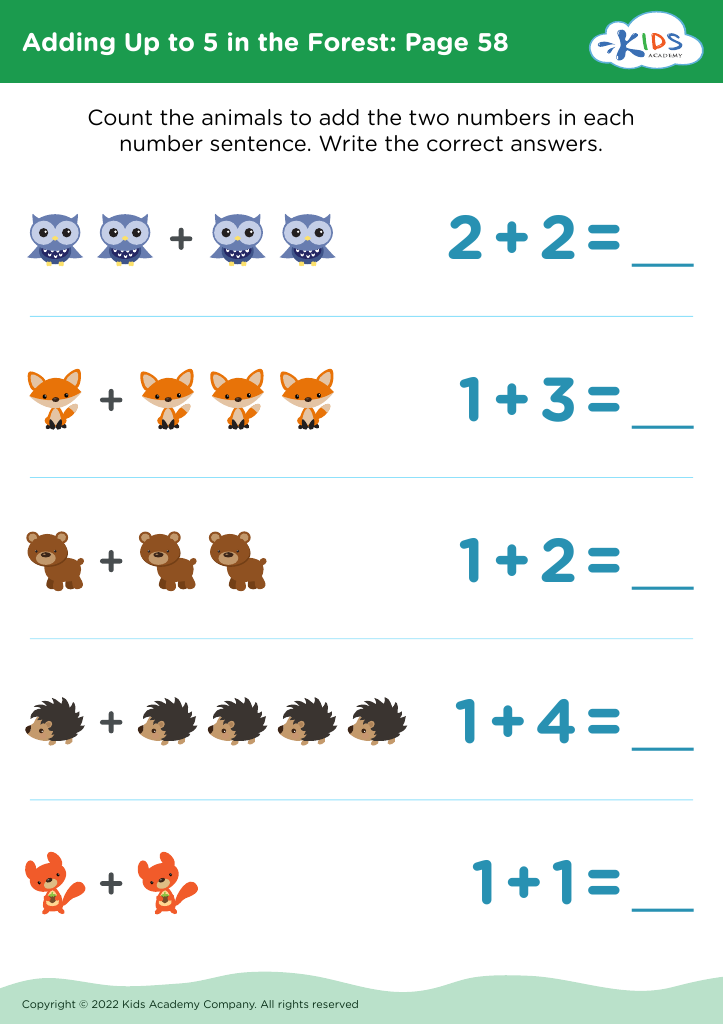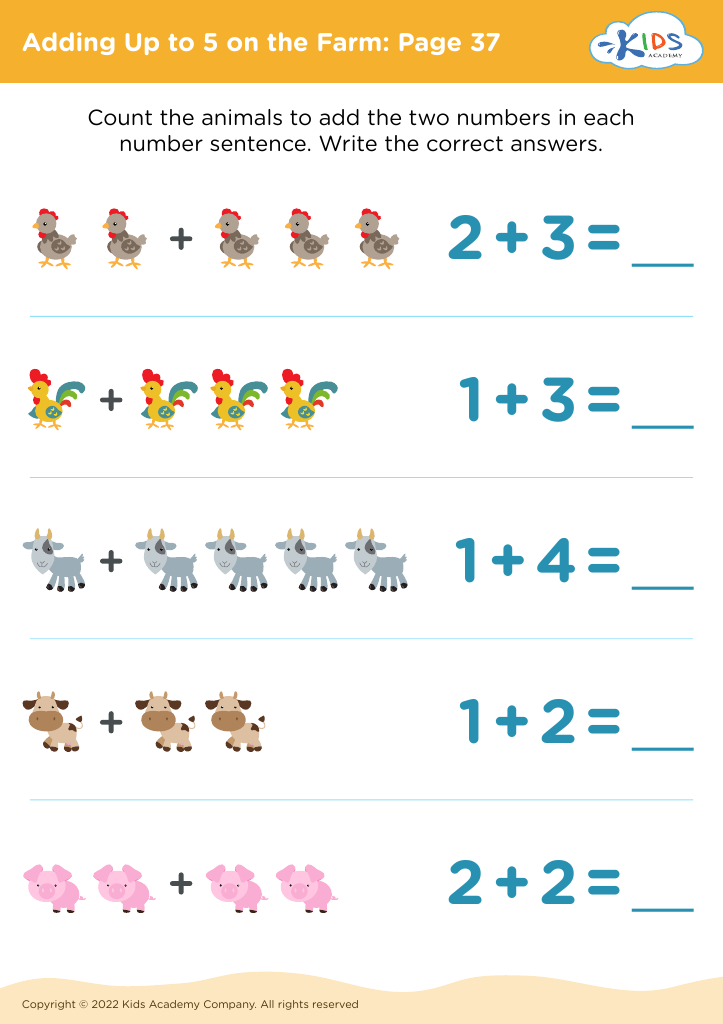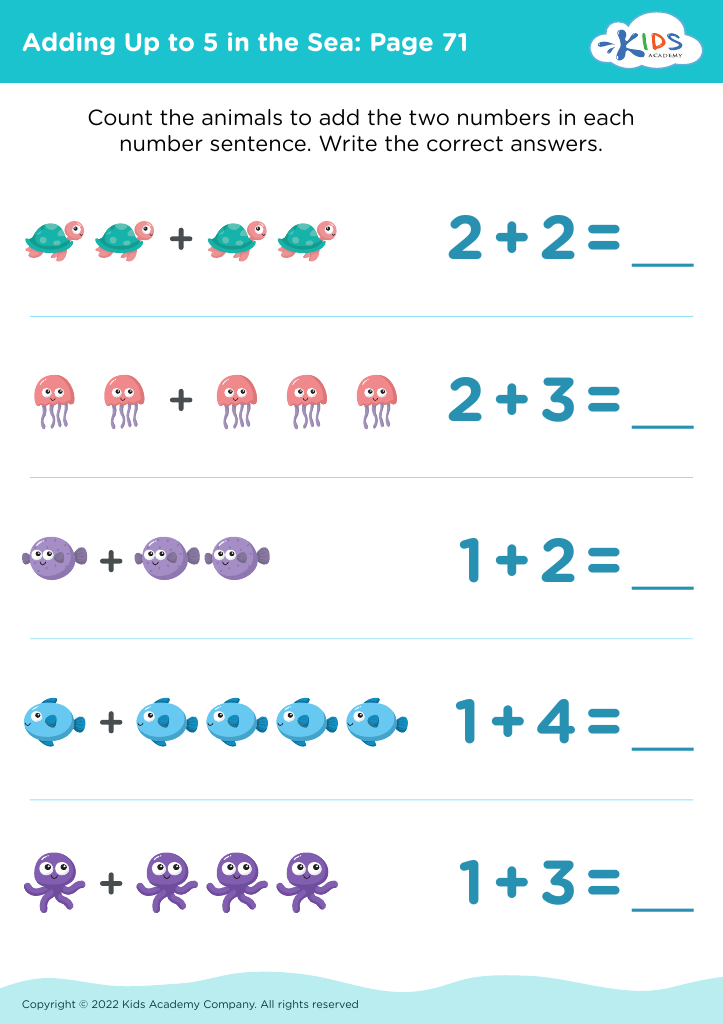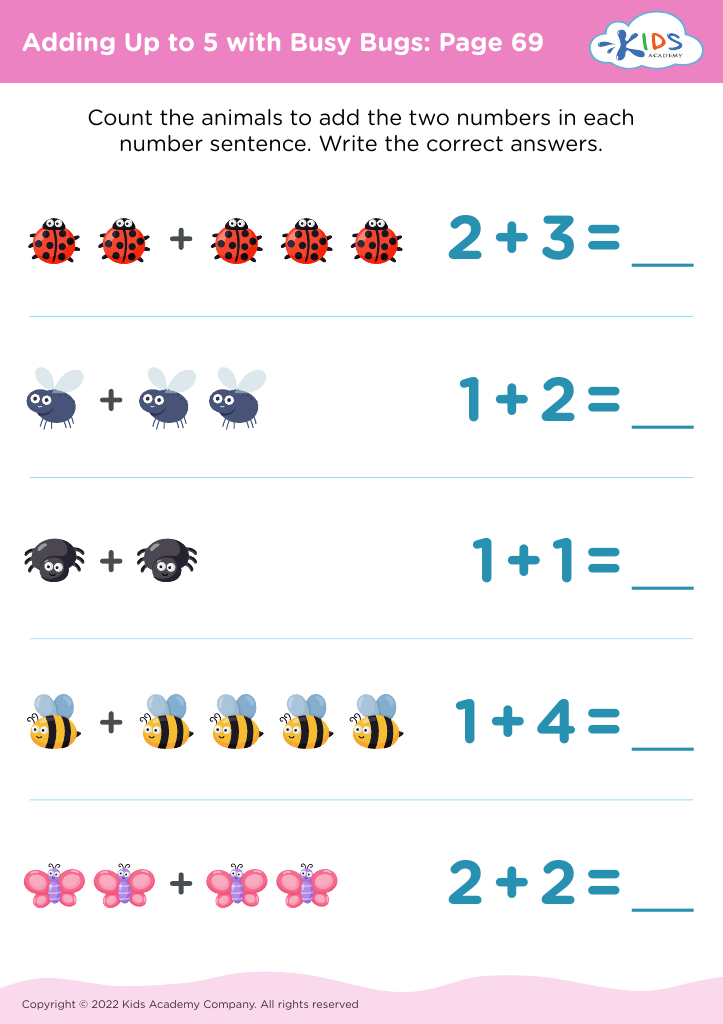Understanding numeracy Adding Up to 5 Worksheets for 5-Year-Olds
4 filtered results
-
From - To
Our "Understanding Numeracy: Adding Up to 5 Worksheets for 5-Year-Olds" are designed to make math fun and engaging for young learners. These printable worksheets help children grasp basic addition concepts within a comfortable range of numbers. With vibrant illustrations and child-friendly problems, kids practice adding numbers up to 5 in a playful setting. Ideal for building a strong foundation in numeracy, these resources support educators and parents in introducing early math skills effectively. Boost confidence and learning enjoyment with our thoughtfully crafted worksheets tailored for 5-year-olds discovering the exciting world of numbers!
Understanding numeracy and being able to add up to 5 are critical skills for 5-year-olds, forming the foundation for future mathematical learning. Early numeracy development fosters a child's ability to comprehend and manipulate numbers, which are essential skills in everyday life and later academic endeavors. When parents and teachers focus on helping children master the addition of small numbers like up to 5, they instill a sense of confidence and enthusiasm for math.
For 5-year-olds, adding up to 5 isn't just about memorizing facts; it's about understanding the very concept of addition. This builds their problem-solving skills and teaches them how to approach larger, more complex problems in the future. Furthermore, activities involving counting, adding, and using manipulatives like blocks or counters engage children in hands-on, practical learning experiences. This kind of interactive learning not only makes abstract concepts tangible but also enhances fine motor skills and memory retention.
Moreover, early numeracy skills are linked with better academic performance across the board. They contribute to a child's overall cognitive development, influencing skills such as critical thinking and logical reasoning. By nurturing these abilities early on, parents and teachers prepare children for a successful educational journey, setting a robust groundwork for understanding more sophisticated concepts in math and beyond.







%20(1).jpg)













